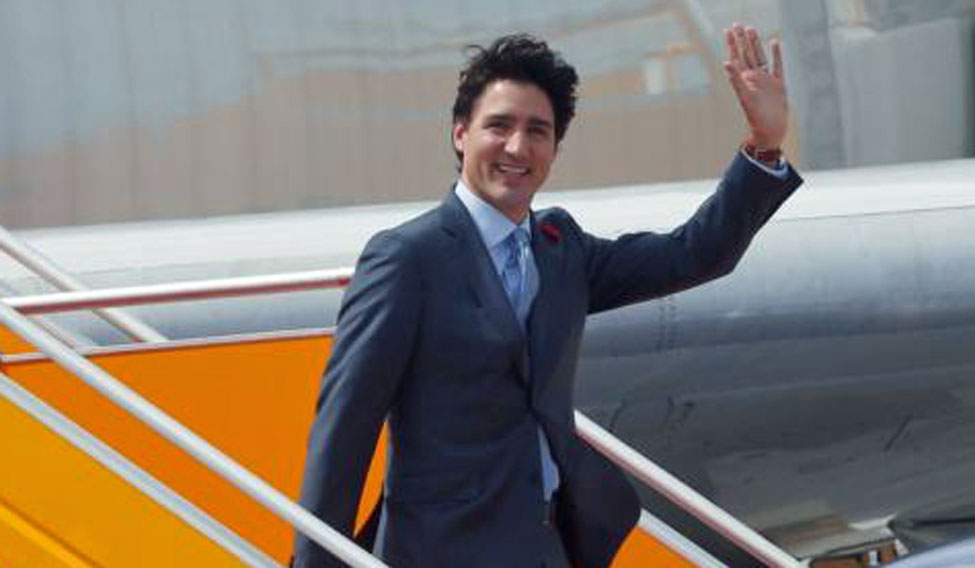Will the Sikh nationalistic movement play spoilsport during Canadian Prime Minister Justin Trudeau's visit to India from February 17 to 23?
This would be Trudeau's first visit to India; the last time a Canadian PM visited was in 2012, when Trudeau's predecessor, Stephen Harper, arrived. Trudeau's visit follows Prime Minister Narendra Modi's 2015 trip to Canada.
Both countries have made efforts to ensure that the visit goes smoothly. Punjab Chief Minister Amarinder Singh said he is looking forward to meeting Trudeau (Punjab and the Golden Temple is part of the Canadian PM's multi-city itinerary).
Singh was earlier peeved at not being granted a visa to Canada in 2016. He had protested with Trudeau for being denied permission to interact with Punjabi NRIs in Canada before the Punjab elections. Singh had also refused to meet Canadian Defence Minister Harjit Sajjan when he visited Punjab last year, calling him a Khalistani sympathiser.
Trudeau, who has made a reputation as an all-inclusive leader, has many persons of Indian origin in his cabinet. These include Sajjan and Amarjit Sohi.
Sajjan recently stated that neither he nor Sohi “sympathise with nor espouse the Sikh nationalist movement, which is bent on creating a separate country called Khalistan in India's Punjab region.'' The Punjab CM, now placated, has welcomed the statement and said that this position paves the way to strengthen ties with India.
Canada is important to India and vice versa. The Indian diaspora forms a sizeable chunk of the Canadian population—1.2 million people (three per cent of the country's population).
These are mainly Sikhs/Punjabis and Gujaratis (Trudeau's visit to Gujarat is significant not just because it is Modi's home state, but also from the diasporic angle). Migration to Canada has stepped up, with several Parsees, including the famous dancer Shiamak Daver, now moving to this North American country.
Post the uncertainties caused by Donald Trump's ascendancy to the presidency in the US, Indians have been looking at Canada as a viable option for education and migration. Software firms, too, are toying with the idea of moving their outsourcing units to Canada. Trudeau has made visible engagement with Indian-origin Canadians, regularly attending their festivals.
Indo-Canadian relations have not been as strong as could have been with such strong diasporic links for several reasons.
One is the nagging doubt that the country offers shelter to several pro-Khalistan elements.
The other factor is Canada's uncertainty over India's use of nuclear material. Though Canada was a big supplier of nuclear material to India, the Pokhran I nuclear test made it sit up and worry about how India would use nuclear material.
In recent years though, India has developed a good track record as a responsible nuclear power. The country's entry into three of the four nuclear clubs—Missile Technology Control Regime, Wassenaar Arrangement and Australia Group—has strengthened this position. Canada is a big uranium supplier to India.
Trade, education, infrastructure, counter-terrorism and space are some of the topics on the agenda. Trudeau is being accompanied by a large business delegation. His visit to Agra and the Taj Mahal seems to indicate he will be accompanied by wife Sophie.






